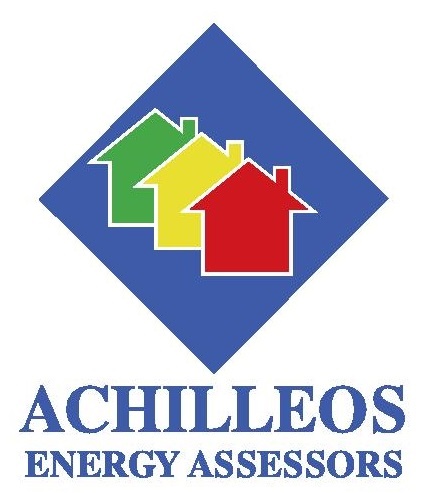

The HSE Approved Code of Practice (L8) advises that ‘organisations or individuals’, who provide residential accommodation or who are responsible for the water system(s) in their premises, are required to ensure that the risk of exposure to legionella in those premises is properly controlled.

Legionnaires' disease is a potentially fatal form of pneumonia caused by the inhalation of small droplets of contaminated water containing Legionella. All man-made hot and cold water systems are likely to provide an environment where Legionella can grow. Where conditions are favourable (ie suitable growth temperature range; water droplets (aerosols) produced and dispersed; water stored and/or recirculated; some 'food' for the organism to grow such as rust, sludge, scale, biofilm etc) then the bacteria may multiply thus increasing the risk of exposure. It is a simple fact that the organism will colonise both large and small systems so both require risks to be managed effectively.
The law is clear that if you are a landlord and rent out your property (or even a room within your own home) then you have legal responsibilities to ensure the health and safety of your tenant by keeping the property safe and free from health hazards. Section 3(2) of the Health and Safety at Work Act 1974 (HSWA) makes provision for relevant health and safety legislation to apply to landlords to ensure a duty of care is shown to their tenants’ with regard to their health and safety.
The general duties require under section 3(2) that "It shall be the duty of every self-employed person to conduct his undertaking in such a way as to ensure, so far as is reasonably practicable, that he and other persons (not being his employees) who may be affected thereby are not thereby exposed to risks to their health or safety".

Landlords, under Section 53 of HSWA are regarded as being self-employed and tenants fall into the class of “other persons (not being his employees)”. If you rent out a property, you have legal responsibilities to ensure you conduct your undertaking in such a way that your tenant(s) are not exposed to health and safety risks. The Control of Substances Hazardous to Health Regulations 2002(COSHH) provides a framework of actions to control the risk from a range of hazardous substances, including biological agents (eg Legionella) - to identify and assess the risk, and implement any necessary measures to control any risk.
There has been no change to UK legislation. Since the L8 Approved Code of Practice (3rd edition) (ACOP) was published in 2001, there has been a requirement for landlords of both domestic and business premises to assess the risks from exposure to Legionellato their tenants. L8 Approved Code of Practice (ACOP) was revised and republished in November 2013 and retained the guidance on the requirements of HSWA and COSHH for employers AND those with responsibilities for the control of premises including landlords (L8 ACOP, paragraphs 1 and 2).
It applies to the control of Legionella bacteria in any undertaking involving a work activity AND applies to premises controlled in connection with a trade, business or other undertaking where water is used or stored and there is a reasonably foreseeable risk of exposure to Legionella bacteria (L8 ACOP, paragraph 22).
The practical and proportionate application of health and safety law to landlords of domestic rental properties is that whilst there is a duty to assess the risk from exposure to Legionella to ensure the safety of their tenants, this does not require an in-depth, detailed assessment.
The risks from hot and cold water systems in most residential settings are generally considered to be low owing to regular water usage and turnover. A typical ‘low risk’ example may be found in a small building (eg housing unit) with small domestic-type water systems, where daily water usage is inevitable and sufficient to turn over the entire system; where cold water is directly from a wholesome mains supply (no stored water tanks); where hot water is fed from instantaneous heaters or low volume water heaters (supplying outlets at 50 °C); and where the only outlets are toilets and wash hand basins.
A simple assessment may show that there are no real risks and are being properly managed and no further action is needed. It is important to review the assessment in case anything changes in the system. Implementing simple, proportionate and appropriate control measures will ensure the risk remains low. For most domestic hot and cold water systems, temperature is the most reliable way of ensuring the risk of exposure to Legionella bacteria is minimised ie keep the hot water hot, cold water cold and keep it moving.
Other simple control measures to help control the risk of exposure to Legionella include:

The risk is further lowered where instantaneous water heaters (for example combi boilers and electric showers) are installed because there is no water storage.
Tenants should be advised of any control measures put in place that should be maintained eg not to adjust the temperature setting of the calorifier, to regularly clean showerheads and tenants should inform the landlord if the hot water is not heating properly or there are any other problems with the system so that appropriate action can be taken.
Where showers are installed, these have the means of creating and dispersing water droplets (aerosols) which may be inhaled causing a foreseeable risk of exposure to Legionella. If used regularly (as in the majority of most domestic settings) the risks are reduced but in any case, tenants should be advised to regularly clean and disinfect showerheads. Instantaneous electric showers pose less of a risk as they are generally cold water-fed and heat only small volumes of water during operation.